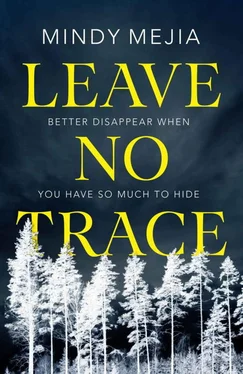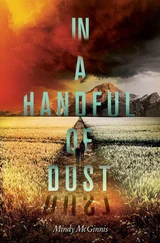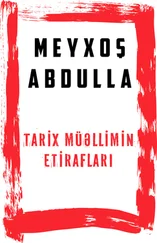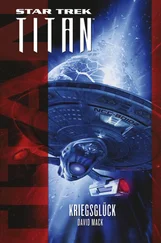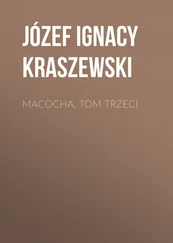‘You’ll go to medical first,’ I spoke low, ignoring the angry slice of Dad’s face in the rearview mirror. ‘Hopefully you’ll be back in ward two in a few days, tops.’
He could hear what I wasn’t saying. Swallowing, he looked at the tail of the squad car in front of us and the city rushing past. He didn’t respond.
‘You can’t just skip up to the Boundary Waters tonight. You’re still weak, it’s below freezing, and you don’t have any gear.’
‘Winter’s coming.’ He rounded on me. ‘What would you do if it was your father out there?’
A bark of a laugh snapped both our heads to the front of the cab. ‘She prefers me gone. Then there’s no one to complain when she half kills herself getting electrocuted or strangled by violent patients.’
‘Dad—’ I tried to jump in but he only got louder, a captain used to bellowing over the wind. Lucas looked shell-shocked when he heard the last part and I reached out to him quickly, shaking my head. Dad hadn’t known Lucas was the patient who’d choked me, and it was in everyone’s best interest to keep it that way.
‘What the hell was going on back there, Maya?’
‘She didn’t do anything,’ Lucas said. ‘I came to find her—’
‘I didn’t ask you, Blackthorn.’ The streetlights broke in waves over Dad’s face, splintering his irritation as he took another turn. ‘And I thought you were supposed to be a kid.’
Lucas turned to me. ‘I’m supposed to be a kid?’
‘You’re nineteen,’ I told him, ‘even though you don’t look or act like a typical teenager.’
Lucas thought about that for a second. ‘What are nineteen-year-olds supposed to act like?’
I shrugged. ‘Younger. Stupider.’
He smiled. ‘I’ll work on that. So how old are you?’
‘Twenty-three.’
‘And you’re acting like a thirteen-year-old,’ Dad cut in, not ready to let the conversation get away from him. ‘What happened back at the house?’
‘Lucas is my patient. He came to tell me some things we’ve been working on in therapy. I think we made a breakthrough tonight.’
Dad laughed again and it was a hard sound. ‘You got the lines down, Maya, but don’t try to sell bullshit to me, even if you’ve made it smell like roses. Why were you running away from the police with him?’
I didn’t answer. I couldn’t even explain it to myself.
‘Christ, I knew it was a bad idea when you took the job there. You don’t go work at the same mental hospital where you spent time as a patient seven years ago.’
Lucas looked at me sharply. His shock was palpable as I stared down at my lap and said in a voice that didn’t sound like my own. ‘Eight years ago.’
‘Whatever. The point is that you should be in the regular world with a normal job.’
‘Define normal.’
‘Out here!’ He flapped a hand at the dark, vacant streets. ‘You could be a therapist in a clinic making twice the money and not getting attacked every day. Do you even know how much you’re worth?’
‘It didn’t go so well when I was out there in the regular world. Besides I do good work at Congdon. I help people.’ My voice came rushing back and with it, my own anger.
‘You’re susceptible to this head case stuff. That’s all I’m saying.’
‘It’s not contagious, Dad.’ Lucas laughed once, but I could still sense his surprise. ‘And I’m probably the least susceptible twenty-three-year-old I’ve ever met. It comes from being half you.’
‘But you’re half her, too.’
Before I could reply, Dad turned onto Congdon’s street and I gasped. A reporter stood in front of the gate, filming a segment, next to at least a dozen people crowded onto the cracked sidewalk. They held signs and leaned into the shot, their faces washed bloodless by the camera light. There’d only been a handful of them here when I punched out a few hours ago, but news of the escape must have made them multiply. A girl about Lucas’s age with bright red hair stared at the truck as we approached, holding a piece of tagboard that read If he’s crazy, I’m crazy. She pointed and yelled something, causing the rest of them to turn as one while the cameraman scrambled to get footage of our procession.
‘Get down.’
I pushed Lucas by the good shoulder, doubling him over in the rear seat as the guards began herding people back, trying to make way for the police motorcade. The crowd didn’t want to disperse.
‘Who – ?’ Lucas began, but anything else he might have said was lost in the yells and clamor of a mass of bodies breaking free from the guards and racing toward us. Signs waved frantically, hands reached out with grasping fingers as I held Lucas’s head beneath the window. One of the police cruisers spun a U-turn inside the gate and flipped their siren on, driving between us and the crowd. As soon as the path forward was clear, Dad gunned the engine and sped through the parking lot to the main entrance where a team of orderlies, nurses, and more security guards waited for us.
I gave Dad’s shoulder a squeeze before grabbing Lucas’s hand and sliding across the seat to the door. ‘Thanks, Dad. Don’t wait for me.’
We hurried toward the main doors, flanked by the remaining police officers. Once inside we were rushed to the medical ward where they performed a series of checks on an uncharacteristically docile Lucas. He submitted to every probe, answered every question, and it wasn’t until I saw Dr Mehta standing at the doorway to the triage area, eyes narrowed in speculation, that I realized I’d barely let go of Lucas’s hand since the moment we got out of the truck.
THE NEXT MORNING the world was coated in white. A thick frost had frozen every rooftop, lawn, and tree branch in Duluth and as I peered out the staff break room window, rubbing the couch debris out of my sleep-bruised eyes, a powdery snow whipped into the panes and skittered along the ground, as if the wind refused to let it land. Sometime in the night I’d left Lucas in the care of the nurses and headed down the hall for a few restless hours of sleep. The break room furniture was scratchy and reeked of antiseptic, but it beat going home and trying to explain what happened last night while Dad looked at me in that way of his – like I was a vase glued carefully back together and he had to constantly check me for missing pieces, fissures, any sign that I might crumble again. Today was my day off, though, and I couldn’t leave Jasper alone much longer. I stared into the blowing white world and listened to the tick, tick, ticks of the snow against the window, each flake hurling winter that much closer.
After checking on Lucas – who may or may not have been sleeping – I took the bus home and made sure the garage was empty before going in to shower and walk the dog. We drove up to Bayfront and paced the lake walk, where Jasper chased snow devils and I limped along the empty boards and scanned Superior’s horizon. The powder wouldn’t last. The sun would chase it away as soon as the clouds broke, but we were getting closer to November and not even Superior’s gales could fight off the inevitable. Normally I liked winter – the four-foot drifts, the nostril-freezing arctic blasts that drove all the tourists away, leaving the town to the hardy, the survivors who bundled up and shoveled oceans of snow before retreating to our mugs and fleece blankets to wait out the endless December nights. Winter in Duluth was antisocial paradise and for someone whose mother suffered from chronic depression, there was a disconcerting comfort in the isolation. A home I recognized, even if I hadn’t asked for it. Today, though, I wasn’t comforted by the cold blast of wind numbing my ankle. I didn’t find relief in the absence of people on the lake walk. Today I was scared for a man I’d never met.
Читать дальше
